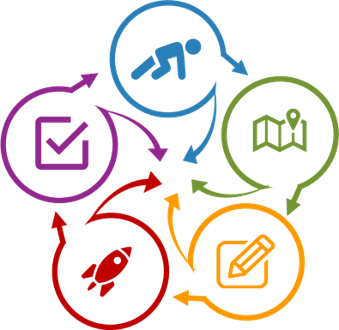Based on: Bower, M., & Torrington, J. (2020). Typology of free web-based learning technologies (2020). EDUCAUSE digital library. https://library.educause.edu/resources/2020/4/typology-of-free-web-based-learning-technologies
(Return to Introduction to Typology of Free Web-based Technologies)
(Search by Instructional Function – opens GoogleSheet in new tab)
The focus on developing computational thinking and computer programming (coding) capabilities has led to the rise of numerous visual programming tools, which enable students to create and share, stories, animations and games by dragging and dropping blocks of code.
| Scratch 3.0 (https://scratch.mit.edu) | possibly the most well renowned example, used by tens of millions of students worldwide |
| Code.org (http://code.org) | enables students to create and share programming projects online, and includes numerous small programming challenges |
| Gamefroot (https://make.gamefroot.com) | provides an alternative that is specifically designed to support game development |
| Code Academy (https://www.codecademy.com) | coding experiences through integrated tutorials |
| Free Code Camp (https://www.freecodecamp.org) | coding experiences through integrated tutorials, focuses on text-based coding |
| Khan Academy (https://www.khanacademy.org/computing/computer-programming) | coding experiences through integrated tutorials, focuses on text-based coding |
| Grok Academy (https://grokacademy.org/) | offers interactive tutorials and simulators for learning to code in a range of languages (formerly Australian Computer Academy) |
| Makecode (https://www.microsoft.com/en-au/makecode) | offers interactive tutorials and simulators for learning to code in a range of languages |
